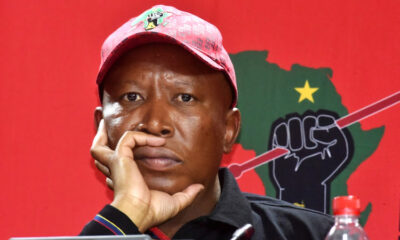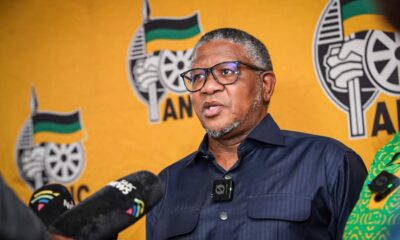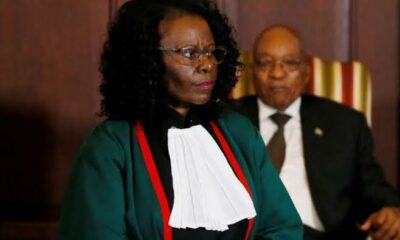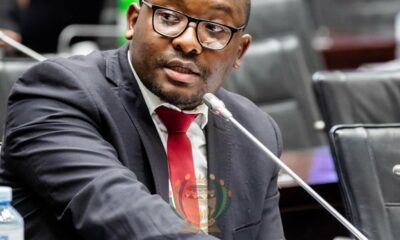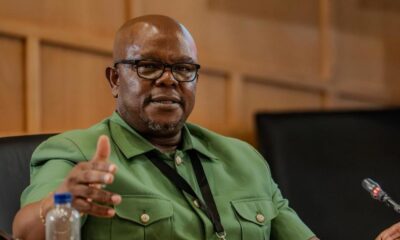News
Power, Politics, and Point-Scoring: The Fight Over Limiting Motions of No Confidence in South Africa
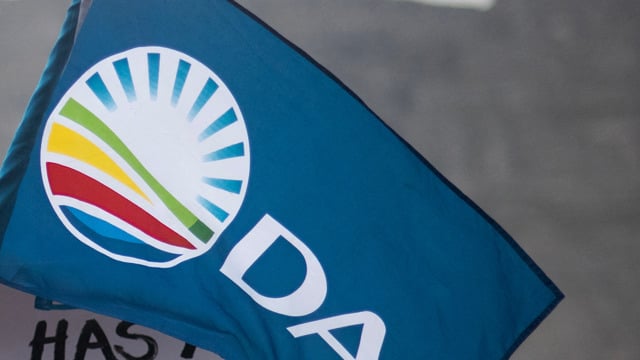
For anyone who’s been paying attention to South African politics over the past decade, especially in metros like Johannesburg, one thing has become abundantly clear: motions of no confidence have become less about genuine accountability and more like political football.
Now, the Democratic Alliance (DA) wants to blow the whistle.
In a bold move that’s already causing sparks in Parliament, the DA is proposing changes to the Constitution that would restrict how often motions of no confidence can be brought against government executives across all levels of government. According to the DA, this isn’t about silencing criticism—it’s about preventing chaos.
But not everyone’s buying that. Especially not the uMkhonto weSizwe (MK) party.
‘No justification for tampering with the Constitution’
MK party spokesperson Nhlamulo Ndhlela came out swinging this week, accusing the DA of trying to “neuter Parliament” under the guise of reform.
“This isn’t reform. It’s regression,” said Ndhlela. “We already have rules to stop frivolous motions. What the DA wants is political immunity for underperformers. That’s dangerous.”
Ndhlela’s passionate rejection of the proposal is rooted in a fear many South Africans share: that power, once insulated from accountability, can easily become abuse.
His concerns aren’t unfounded. South Africa’s Constitution was born from struggle—designed to be a safeguard, not a shield for compromised leadership. And in a country still grappling with service delivery failures and public trust deficits, tinkering with oversight mechanisms raises alarms.
Why the DA says it’s necessary
The DA, however, argues that the instability created by excessive no-confidence motions is doing more harm than good. DA spokesperson Willie Aucamp told The Citizen that metros like Johannesburg have become prime examples of dysfunction—electing more than eight different mayors since 2016.
For the DA, limiting the frequency of no-confidence votes to once every 12 months would inject some much-needed stability, particularly in fragile coalition-run municipalities.
“This isn’t about dodging accountability,” said Aucamp. “It’s about making these motions matter again.”
The party is pushing two bills forward to enshrine these restrictions into law and has no intention of backing down, despite fierce criticism.
Are no-confidence motions being misused?
Political analyst Professor Theo Neethling from the University of the Free State adds some nuance to the debate.
He supports the idea—at least in principle.
“If used wisely, limiting these motions could reduce political theatre and give them more weight,” he said. “But getting buy-in from other parties? That’s a whole different game.”
Neethling’s suggestion mirrors earlier proposals from former Minister of Co-operative Governance Thembi Nkadimeng, who called for a “cooling-off period” following no-confidence votes in councils to prevent constant leadership reshuffles.
A bigger issue: South Africa’s coalition chaos
At the heart of the debate is a deeper problem: the instability of coalition governments, particularly at local level. Johannesburg is a poster child for this dysfunction.
Since 2016, coalitions have been formed, dissolved, and reformed like unstable chemical compounds—often leading to leadership vacuums, disrupted services, and frustrated residents.
While motions of no confidence are supposed to be tools of last resort, they’ve increasingly been wielded as political sabres—used to oust opponents for power grabs rather than to hold failing leaders accountable.
And it’s not just the DA saying that. Residents of Johannesburg and other metros have watched this play out in real time, with mayors changing as frequently as seasons and little continuity in governance.
The DA’s proposed bills still need to pass through Parliament, and with opposition mounting, their path forward is uncertain. But one thing is clear: South Africa is wrestling with a core question about its democracy.
Should we limit the tools that keep leaders accountable in the name of stability?
Or should we risk chaos to preserve our right to demand better governance—whenever necessary?
In a time where public trust is already fragile, it’s not just a constitutional debate—it’s a referendum on how we want to be governed.
{Source: The Citizen}
Follow Joburg ETC on Facebook, Twitter , TikTok and Instagram
For more News in Johannesburg, visit joburgetc.com



